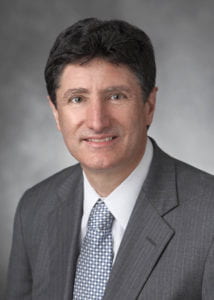![]()
Dear All,
You are cordially invited to attend the last FRE Lecture Series for the Fall 2019 semester on Thursday, December 5th in the Event MakerSpace (6 MetroTech Center, Brooklyn, NY) at 6:00 p.m.
Dr. Yuewu Xu will present a talk on the following topic:
Title:
A New Approach to Recover Risk-Neutral Distributions From Options
Abstract
This paper develops a novel model-free representation of the risk-neutral density in terms of market observed options prices by combining an exact series representation of the Dirac Delta function and the Carr-Madan spanning formula. Compared to the widely used method for obtaining the risk-neutral densities via the Breeden-Litzenberger device, our method yields risk-neutral densities that are model-free, automatically smooth, in closed-form, and do not involve operations such as interpolation of the implied volatilities. The closed-form feature of our new representation makes it ideal for many potential applications, including a new model-free representation of the local volatility function in the Dupire’s local volatility model. The validity of our method is demonstrated through simulation studies as well as an empirical application using real options data. Extension of the method to higher dimensions is also established by extending the Carr-Madan spanning formula.
JEL Classification: G12, G13, G14, C58
Keywords: Risk-neutral distribution, option-implied information, Carr-Madan formula, Dirac Delta function.
Bio:
Dr. Yuewu Xu is currently an associate professor of finance at the Gabelli School of Business, Fordham University. His research interests are in the areas of theoretical and empirical asset pricing, and financial econometrics. Dr. Xu’s research articles have appeared in leading academic journals such as the Journal of Finance, Journal of Financial Economics, Journal of Financial and Quantitative Analysis, and the Journal of Econometrics, and his works have been presented in the conference of American Finance Association and the Western Finance Association. Prior to joining Fordham, Dr. Xu was director of investment strategy and research at a major asset-management firm in New York where he worked for five years.
Prof. Xu holds a PhD in finance and a PhD in statistics from Yale University.
We look forward to having you join us for the talk and refreshments.




 Jerome Pesenti
Jerome Pesenti